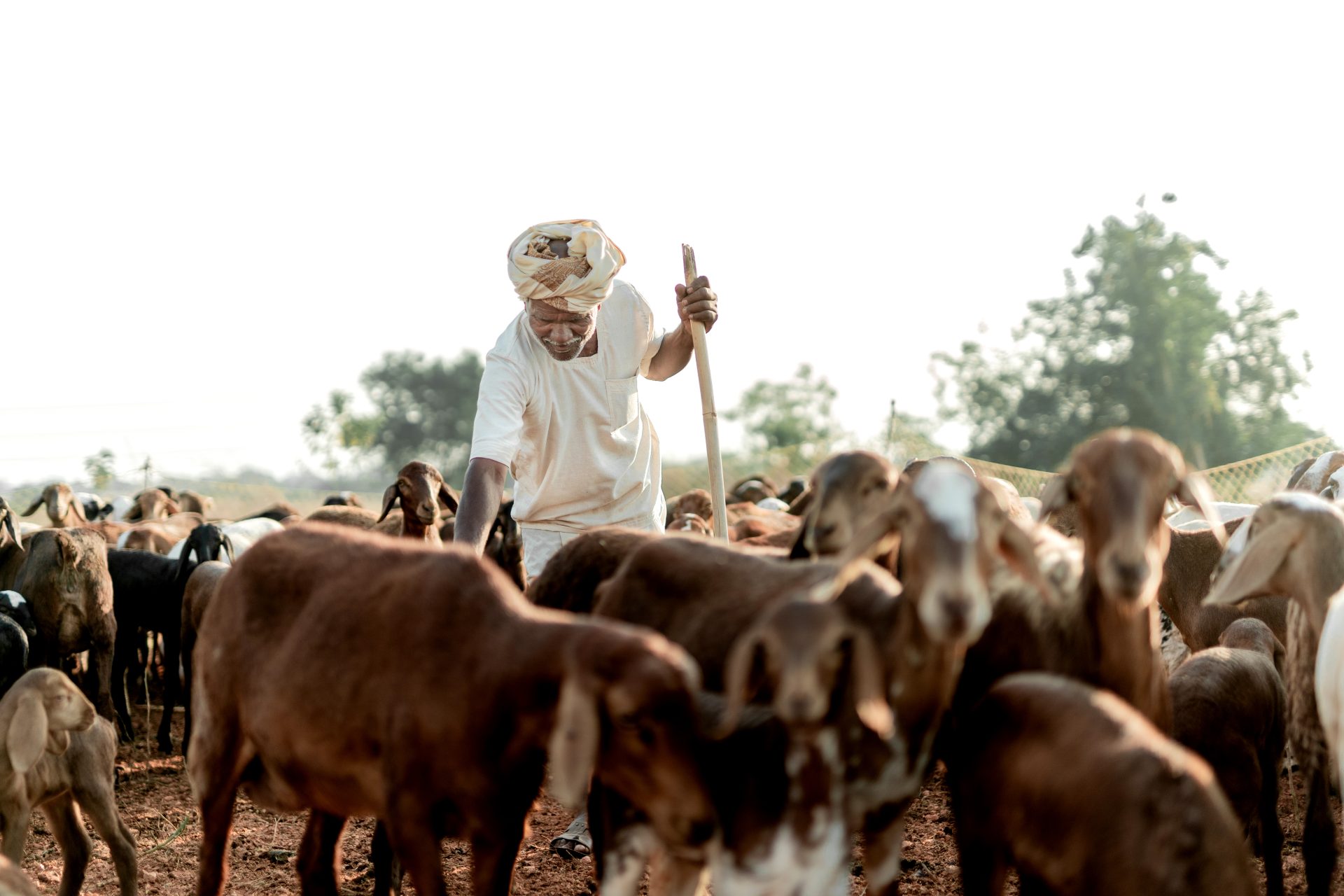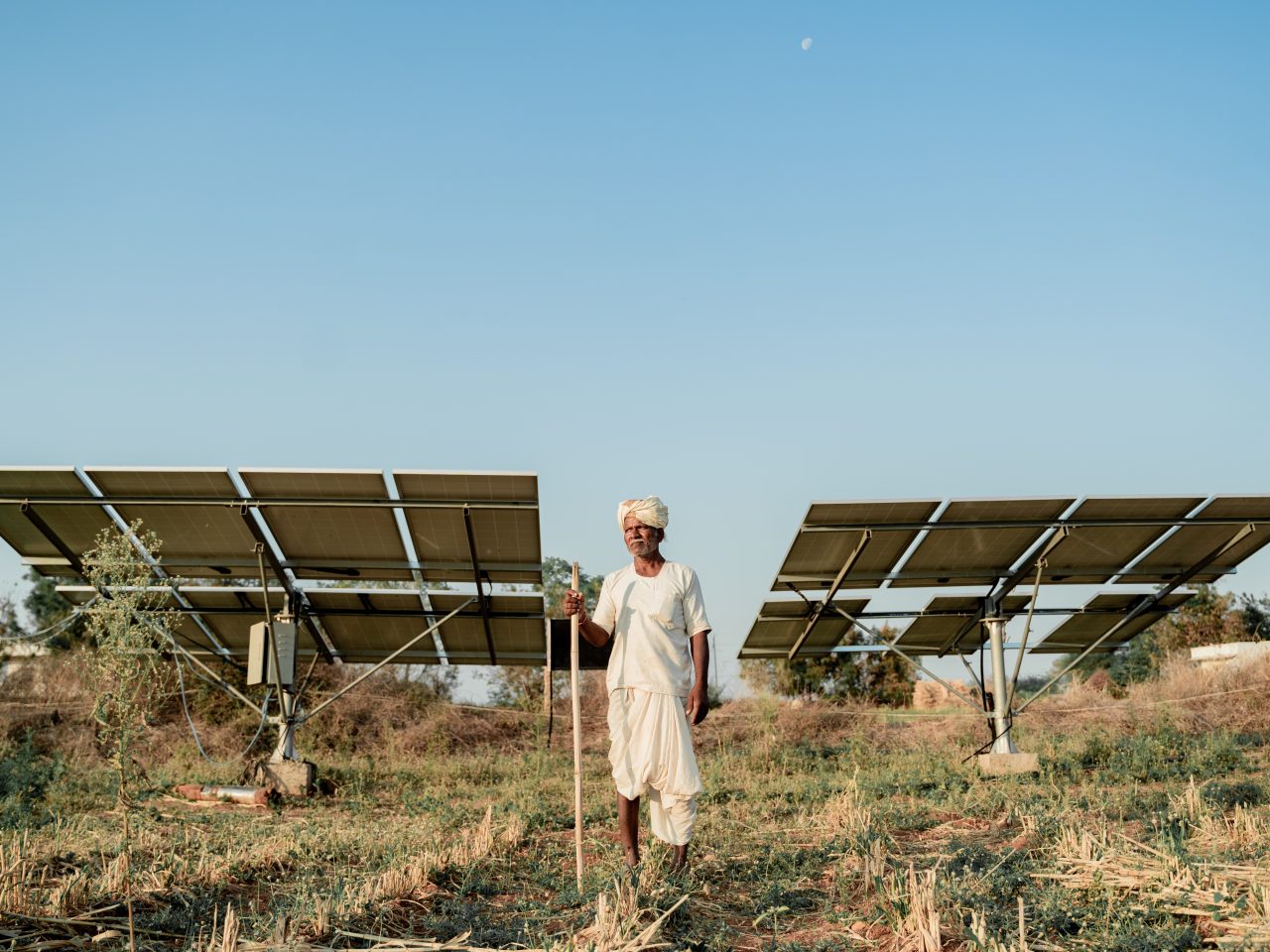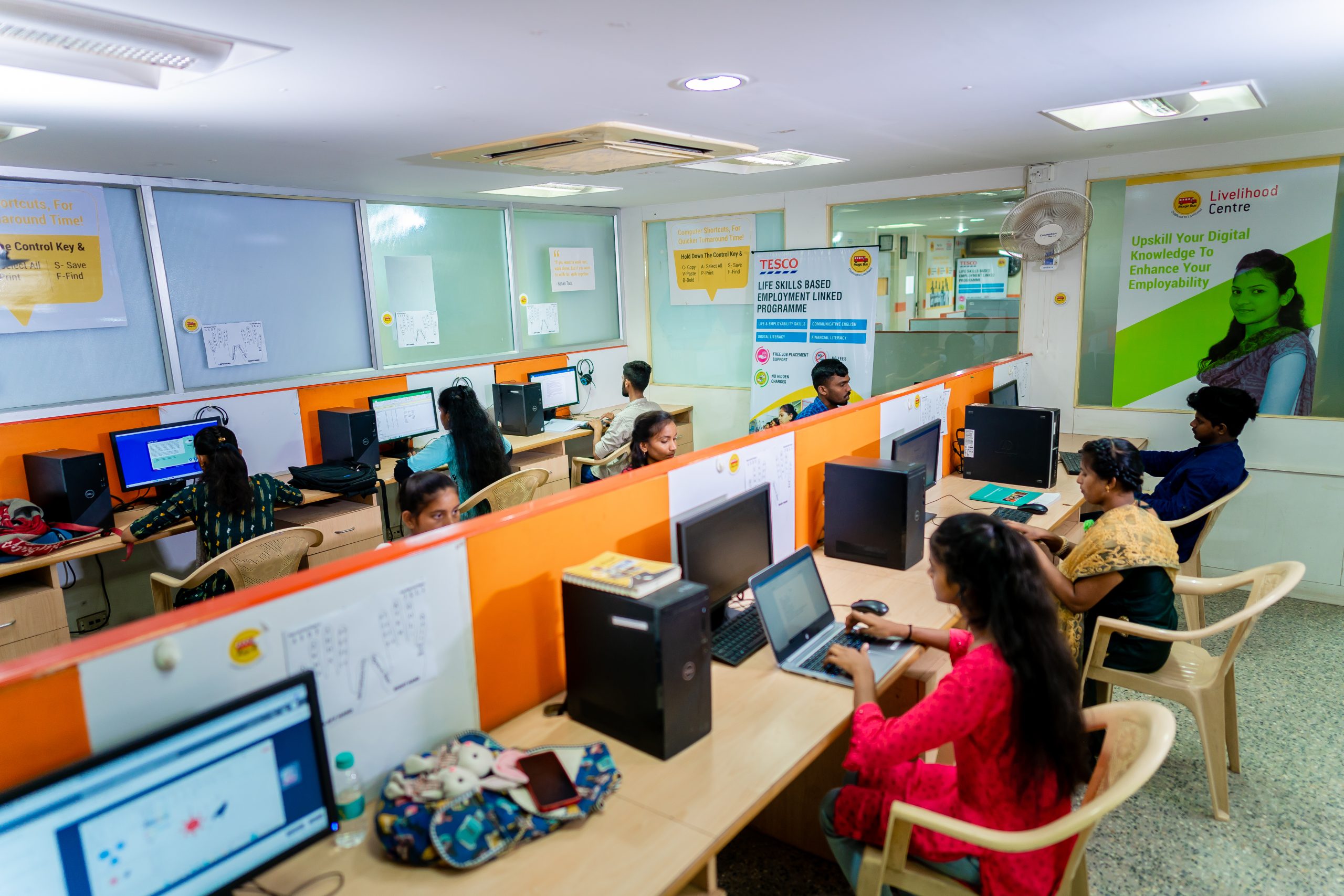Every little help, makes a big difference
The food sector both contributes to climate change and is vulnerable to its effects. Since 2009, we have reduced our Group Scope 1 & 2 emissions by 52%. We aim to be carbon neutral by 2035. But we know, most of our emissions come from our supply chain and our customer’s homes. We are working with our suppliers and partners in Europe, to deliver our goal to be net zero from farm to fork by 2050.
Tesco Bengaluru’s Corporate Social Responsibility Programme drives inspiration from this ethos, while adapting to the local context. We prioritised Waste Management in local communities, Sustainable Agriculture for marginalised farmers, and Education & Skilling for youth.
While aligning to the global discourse on sustainable development and local needs, we adapted 5 of the United Nations’ 17 Sustainable Development Goals namely; Zero Hunger, Quality Education, Decent Work & Economic Growth, Responsible Consumption & Production, and Partnership for the Goals; Our Corporate Social Responsibility programmes are on a trajectory to consistently impact 3,00,000 plus lives in the state of Karnataka over the next few years.
Project AgriNext
Project ReWare
Project Nextgen and Ignite
- Project AgriNext
- Project ReWare
- Project NextGen
- Project Ignite
Our project under Sustainable Agriculture – AgriNext, is in Yadgir which is an aspirational district for Karnataka. It is predominantly an agricultural district and witnesses a high incidence of seasonal migration because of low productivity of crops. To improve long term livelihood security and quality of life, TESCO partnered with Kalike to provide a multilayered solution by empowering 5,000 women-led farming households.
The project has adopted an integrated approach for implementation:
- Cluster formation: A cluster is a group of 5-10 adjoining villages that will share a Village Information Centre (VIC) and Village Resource Person (VRP). Each VIC will be linked to ‘Raita Sampark Kendra’ (RSK), which offers technical knowledge of crop production, selection, market information, soil testing etc.
- Multi-layered Livelihood Interventions: Multi-layering of livelihoods triggers large-scale development, an increase in income and a sustainable change. The project will do this through Agriculture and Horticulture development, Soil and Water conservation, Decentralised Renewable Energy, Livestock farming, Community Institution Building, and Financial Inclusion.
- Evidence-Based Farming: Robust data management and analysis of ground situations to clearly understand problem areas and define interventions.
- Value Chain: System of developing and strengthening product-based value chains.
- Sustainability: While implementing the technical projects, also strengthen the system of community-based organisations to give long-term sustainability for the activities.
- Market-based Interventions: Focus on market-based interventions in all the value chains
AgriNext, targets to increase the household income of these 5,000 households by Rs.50-75K, and increase productivity by 20-30%, bring 62,500 acres of land under critical irrigation and 1.25 lac acres of land under improved agricultural practices.
Waste management has been at the forefront of many a conversation, not just in Bengaluru but in the world at large. TESCO’s Corporate Social Responsibility project ‘ReWare’, aims to reduce the amount of waste that ends up in landfills by following a three-pronged approach:
- Citizen participation: Inducing behavioral change in the community, by promoting awareness about segregation of waste at source and recycling, waste reduction at a personal level and composting at home.
- Multi-stakeholder partnership: Reinforcing government-established waste collection systems, by collaboration with BBMP, Dry Waste Collection Centers and compactors for segregation and recycling
- Training: Train waste workers and rag-pickers to provide a robust waste collection system that covers households, schools, hospitals, offices etc.
ReWare focusses on 5 wards comprising 75,000 households or 3,00,000 individuals – Garudacharpalya, Kadugodi, Hagaduru, Hongasandra and HSR.Over the last 5 months, we reached 26,652 households resulting in a 21% increase in segregation of waste at households and collection 1800 tonnes of dry waste. Trading of recyclable dry waste material is a source of income for waste workers and rag pickers. Better segregation of waste improves their livelihood.
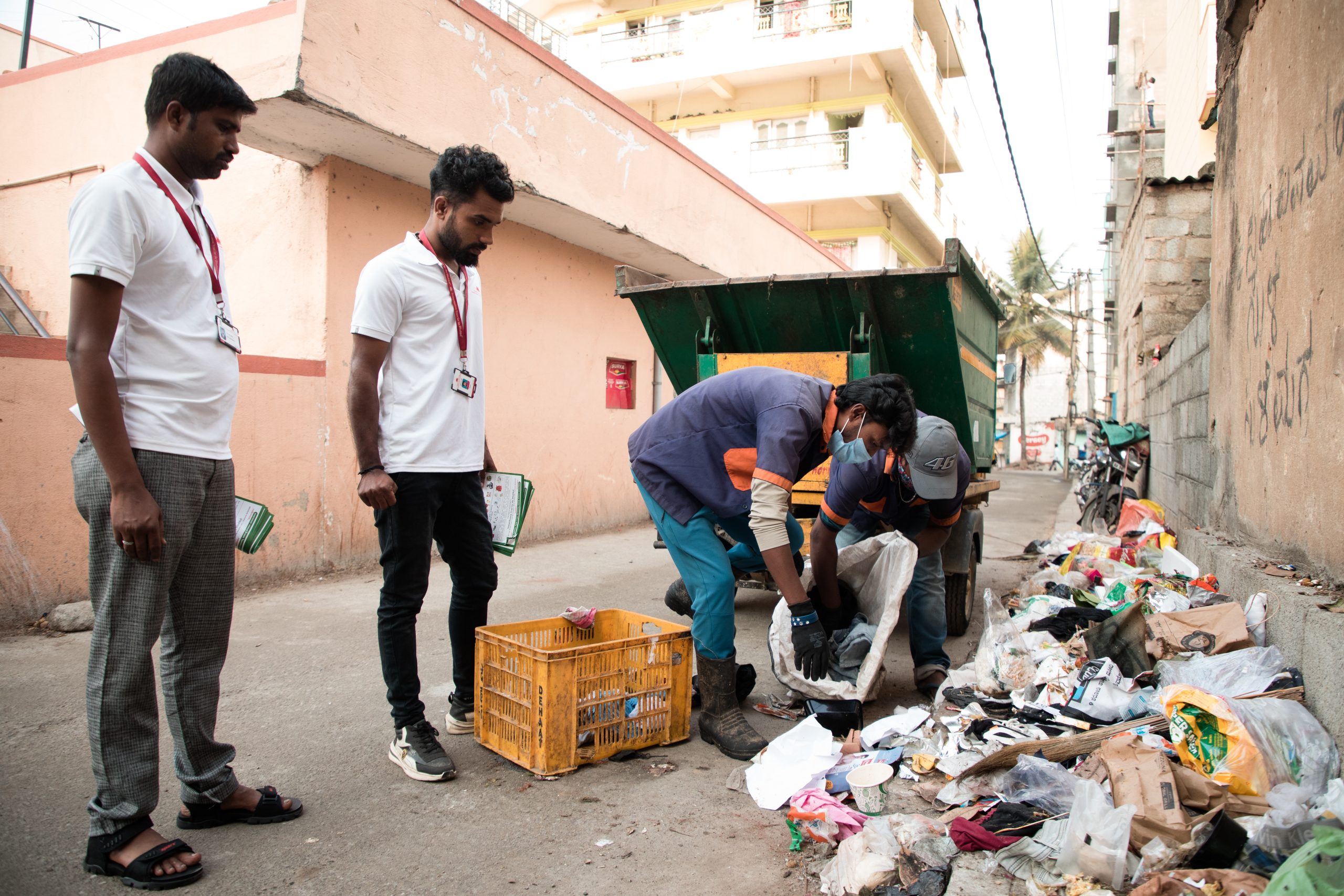
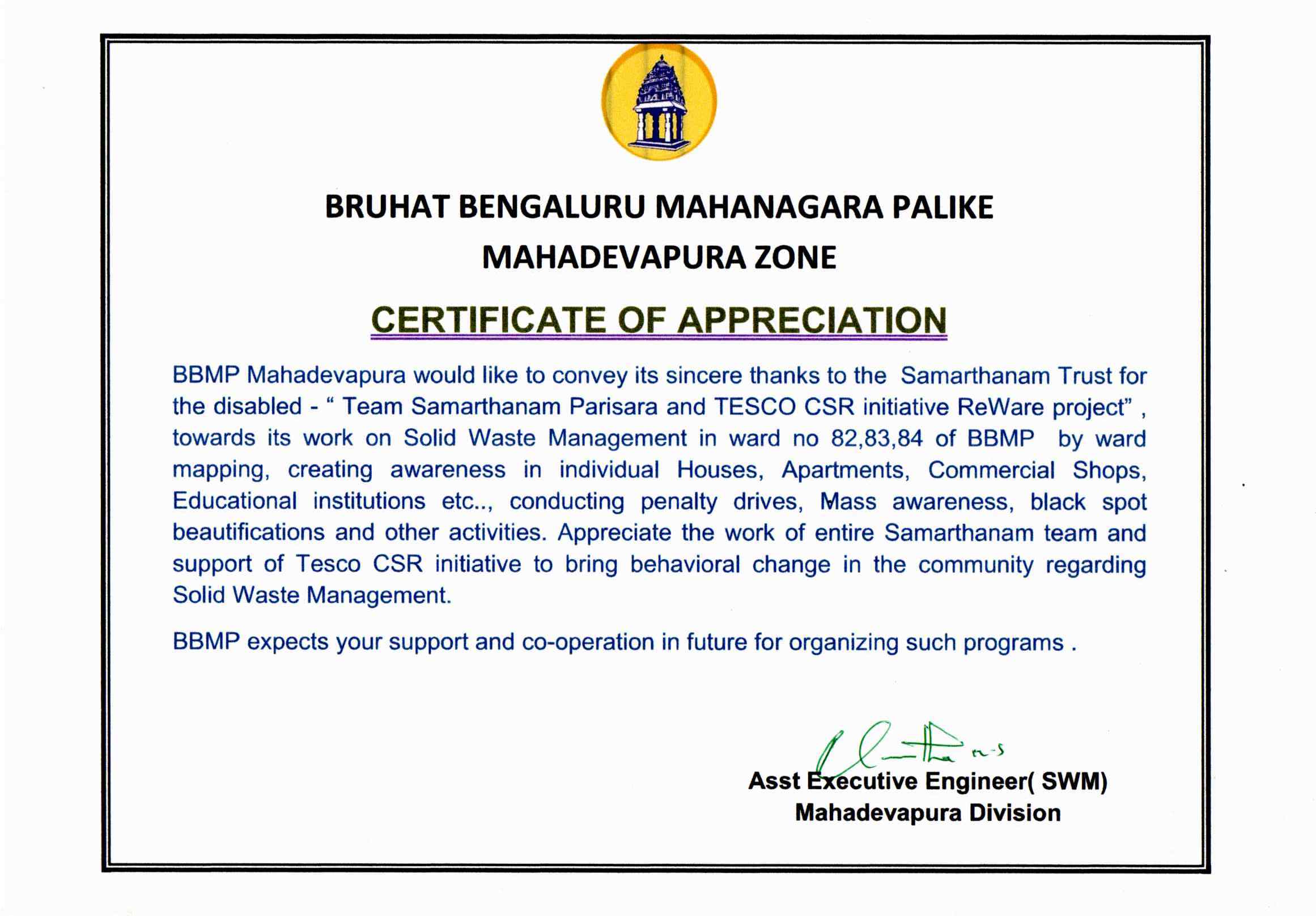
Tesco and FFE partnered in FY 20 -21 to support meritorious students from underserved communities pursuing degrees in Engineering (BE)/ Technology (B.Tech), for the entire duration of their professional course. Until the year 2024, the project continues to support 200 students through merit-cum-means scholarships. It helps students pursue their dreams of attaining professional education as they come for economically challenged backgrounds with an average annual family income in the range of INR 77,000 – 80,000. Nearly, 50% of the families depend on agriculture and rest are daily wagers/ small business owners. Despite their economic challenges and negligible academic support from families, students performed well in their Grade 12 with an average percentage of 91.8 and earned scholarships by merit. Consequently, we started Phase 2 of the programme by supporting 100 more meritorious students.
Here is a snapshot of a Tesco – FFE scholars cohort:
- Males: 60; Females: 40
- Students are studying in some of the best colleges in India. Nearly, 60% of the students study in IITs and NITs. Some of the other colleges are Madras Institute of Technology, Rajiv Gandhi Institute of Technology, Sardar Vallabhbhai National Institute of Technology, Coimbatore Institute of Technology, Indian Institute of Information Technology, etc.
Entry-level roles for youth from underprivileged backgrounds, typically fetch minimum wages across India. Employers are not involved with skilling agencies beyond providing employment and there is a gap between the world of education and that of work. As a result, employers feel the need to retrain those hired at entry level positions because of which the employers hire these youth at lower salaries. Also, many learners see engagement with the skilling courses as a way of staying involved in activities outside their home, or as buying time before they appear for employment exams etc. As a result, attrition in courses is high, and placement rates continue to be low. All these factors result in a limitation on the possibilities for employment and professional growth for young people who are typically first-generation secondary school goers, who are trying to break out of the cycle of poverty.
Project Ignite with Magic Bus India Foundation is an employee-centric programme in which youth are mobilised as per the profile required by the employer and the curriculum is a mix of Magic Bus’s pedagogy and employer’s in house modules. Ignite targets to train 900 students by the end of FY 22 – 23, with a minimum of 70% trained youth placed in lucrative jobs with an average remuneration of INR 12,000.
#Volunteering
Over 40 Volunteering Activities
- Lake Cleanup Drive
- T-shirt to Tote
- Building Jenga blocks
- Spot Fixing
- Creating Bird Feeders
- Rain Water Harvesting
- Mentorship & Skill Building
- Visit to Old Age Homes
- Animal Welfare Workshop
- Ration Kit Packaging
- Seed Ball Making
- Creation of Solar Panels
- Creation of Menstrual Hygiene Kits
- Notebook Upcycling
- School Transformation
- Tactile Card Making
- Sign Language Workshop

